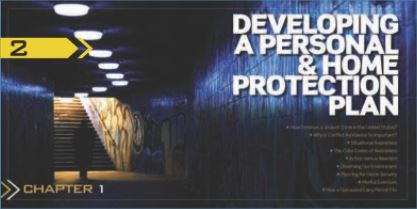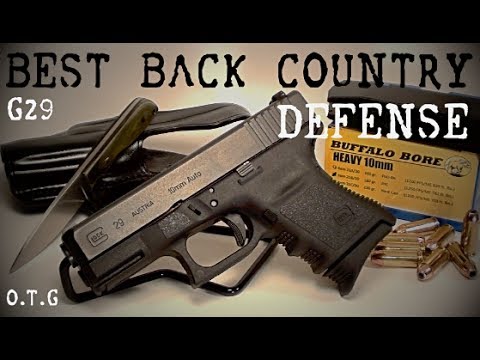
Consider a personal alarm to ensure your safety. These alarms can protect you from danger, whether you're at work or out and about in the city. These alarms come equipped with LED lights and a stungun, as well as a variety safety features. They also have an inbuilt battery and can be recharged using a standard power outlet. These alarms emit 120 decibels of sound, which is loud.
Personal safety alarms with pin activation
If you are concerned about your safety, you can opt for a pin-activated personal security alarm. They are lightweight, portable, and adaptable to all environments. They have a flashing light and a siren that emits 130 decibels. The alarm is activated by pulling a pin or loop. Some models require a battery to activate, while other models require an internal charge.
Pin-activated personal safety alarms are small, battery-powered devices worn on the wrist, waist, or ankle. They produce a high-pitched, loud sound and are equipped with a rechargeable lithium battery. They are available with a variety loudness levels and colors. Personal safety alarms can have a limited life span so make sure you replace them often. There are many instructional videos and guides available from manufacturers if you have any questions about how to use your personal alarm.
KOSIN Safe Sound Personal Alarm
The Kosin Safe Sound Personal Alarm provides a safe way to keep loved ones safe. This alarm works for all ages. It is waterproof, portable, and includes a rechargeable battery. The alarm also sounds when the chime is activated.

Although it is small and egg-shaped (but still very secure), this piece of personal safety is quite substantial. It measures 7.36 inches in height, 3.94 inch wide, and 1.26 inch thick. It has a keyring on its top and small lanyard on its right. Its loud sound will attract attention and deter aggressive dogs.
Sabre HS-DSA Wedge
You might want to consider a personal safety alarm if you are worried about your safety. The Sabre HS DSA wedge is a wedge that can be placed under doors and sound an alarm if someone attempts to open them. It can be very effective in keeping you safe - it can even scare off trespassers - because it can sound a loud, high-pitched alarm for 55 seconds.
This door stop alarm features a 120-decibel siren and an easy-to-use keypad. It is a reliable and affordable personal safety alarm. It can be heard 100 yards away by a siren, which should scare away any uninvited persons. Additionally, the alarm comes with a low-battery indicator.
WETEN Self Defense Personal Alarm Keychain
A WETEN Self Defense Personal Alarm Keychain is a great way to protect yourself without attending a self-defense course. The keychain features a flashing flashlight and a siren with a 130-dB volume, so it can be used to alert others and scare away attackers. You can also take it with you wherever you go, unlike traditional keychains.
Another important advantage of the WETEN Security Personal Alarm Keychain is portability. Unlike knives or pepper spray, it can be carried anywhere. It can be carried anywhere because it is battery-operated.

VIGOROAD Safesound Personal Alarm
The VIGOROAD Secure Sound Personal Alarm emits 130 dB of sound to alert of impending emergencies. It also comes with an integrated LED flashlight and keychain. It is available in different multi-packs with varying color options. The product can be found in many stores. It has received positive as well as negative reviews from consumers.
Its design is compact and easy to carry and can be used as a purse charm or keychain. The clasp can be used as a key ring or lobster claw clasp. It's available in a range of colors. You can buy sets of colors ranging from tan to pink and black to match your purse or keychain. It is lightweight and comfortable to wear and has a loud alarm of 130 decibels.
FAQ
How do beginners do self-defense?
Not only are experts trained in self-defense, but so is everyone else. It is also important to be able defend yourself alone. To protect yourself against an attack, you should know the basics.
You can start by practicing simple movements such as punching, kicking, and kneeing. Next, you can learn more advanced moves like grappling as well as joint locks.
It is always good to practice things that are similar to what you would encounter in real-life situations. For example, if you want to learn how to kick someone, then you should practice on something soft like a pillow.
By doing this, you will not injure yourself while practicing. You should also be careful not to hit any object hard, as you could break it.
How effective is pepper spray as self-defense?
Pepper spray can be used for self-defense. It's quick-acting and relatively easy to use. You should still use pepper spray with proper technique.
As the first line against violent attackers, pepper spray shouldn't be used. You should immediately dial 911 if you are threatened with violence.
How can I learn self-defense at home?
There are many options available to help you improve your self-defense skills. Martial arts is a great place to start. Martial arts can help you learn how to defend yourself, without having to use weapons. They can also improve confidence and strength. Many schools also offer online classes. You don't even have to attend a class. It is important that you know which type of martial arts you wish learn. Do you want to learn Kung Fu? Or perhaps Karate? Although these two styles may be very different, they are both excellent. The main difference is in the style of fighting they use. Kung fu, by contrast, focuses on grappling or kicking while karate focuses only on striking techniques.
Another thing to consider when choosing a school is whether or not they offer instruction in multiple forms. This refers to the various martial arts styles taught within a single school. Some schools only offer instruction in Tai Chi while others can teach you all forms of martial art. Make sure you only study at a well-respected school, regardless of what your goals are. Ask around to see if anyone you know has studied there and asked questions regarding the instructors' background and training history. If possible, you should visit the school to meet with teachers.
Where is the best place for self-defense?
Self-defense can be practiced in your backyard. If you don’t own enough space, you could practice elsewhere.
You could even practice in a vacant parking lot or park. Be aware of where you are and what is around you.
This is extremely dangerous. Always practice alongside a partner.
Statistics
- Most likely, you'll get tapped out by 90% of the people in your first 3-5 months. (mmaclan.com)
- Saying this, Self defense 101 would be the importance of situational awareness, which can never be replaced by the finest of martial arts, because it is this that would help you to avoid any likely attacks in the first place. (worldofselfdefense.com)
- Kung Fu alone has 400 unique martial art styles – and whilst you likely won't be able to find a school for each form, many other martial arts are completely different altogether. (budodragon.com)
- Some people walk into a gym thinking they are going to become the best by training whenever they like and not putting 100% effort in. (budodragon.com)
External Links
How To
What type of self defense should I learn?
Self-defense covers many options. There are many ways to learn self-defense. Here are some of the most common ones:
-
Boxing – Because you can fight with your hands, boxing makes a great self-defense option. Although most people believe only men can fight, boxing is possible for women. Boxing can be learned by women through a variety of methods including private lessons, gyms and online courses.
-
Wrestling is a true sport. In fact, wrestling was once America's national pastime. Private lessons, gyms and online classes are all available for women who want to learn how to wrestle.
-
Jujitsu – Jujitsu is another popular martial arts that teaches you how defend yourself with your body weight. It is easy to learn, and it improves balance and coordination.
-
Kickboxing- Kickboxing has a similarity to Muay Thai but uses kicks instead punches. It's a full combat sport with no rules. It is a great sport for beginners as it is simple to learn.
-
Tae Kwon Do – TKD combines elements of karate (taekwondo), jujitsu, and karate to create a Korean martial art called Tae Kwon Do. It is an excellent choice for self-defense training without the fear of hurting someone.
-
Mixed Martial Arts – MMA is a mix of different martial arts. It is a combination of Judo and Brazilian Jiu Jitsu as well as Judo, Boxing Wrestling and Wrestling. Because of its effectiveness, it's one among the fastest-growing sports.
-
Karate: Karate is a Japanese Martial Art that focuses primarily on kicking techniques. It's been around for many centuries and has evolved over the years. Today, there are many styles of Karate. Each has its own style and training methods.
-
Knife Fighting – Knives can be very helpful when you are defending yourself. It's not necessary to be near your attacker in order for you to stab them. Only you need to know how to safely use a knife.
-
Pepper Spray- Pepper spray can be used as a non-lethal weapon to help you escape from attacks or stop them from beginning. Pepper spray is not recommended for attackers as they are likely to get burns.
-
Firearms are the last line of defense against attackers. This is commonly done by trained civilians and law enforcement officers.
-
Self-Defense Classes: A self-defense course is a great way to master all these skills in one place. They usually cover everything, from grappling to shooting.
-
Combative Sports: Another great option is to take part in combative activities like kickboxing, mixed martial arts, and even amateur wrestling. These sports require extensive practice and discipline and teach you how to protect yourself.
-
Martial Arts Schools-If you are serious about learning martial arts, then you should enroll in a school that teaches it. Some schools offer classes that also include weapons.
-
Online Courses: There are many free resources you can access. 15) Books - Some books might be of assistance. Alan Peppard's "The Complete Idiot's Guide for Self Protection" is a book that covers all these topics.
-
Be Content with What You Already Know - Before you attempt to learn anything new, you should first be familiar with what you already know. By doing so, you can avoid making mistakes that could cause you harm.
I'm thinking I might try self-defense. I have always wanted learn to fight but was not interested in doing it. As I get older, I may as well take care of myself and not rely on others.
I'm going to start slowly and see where it goes from there. I was thinking of joining a local gym, to begin practicing weight lifting and such. I'm still considering whether I should get a gun.